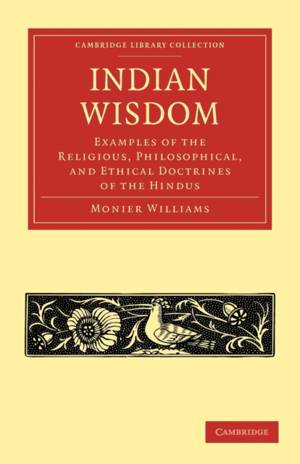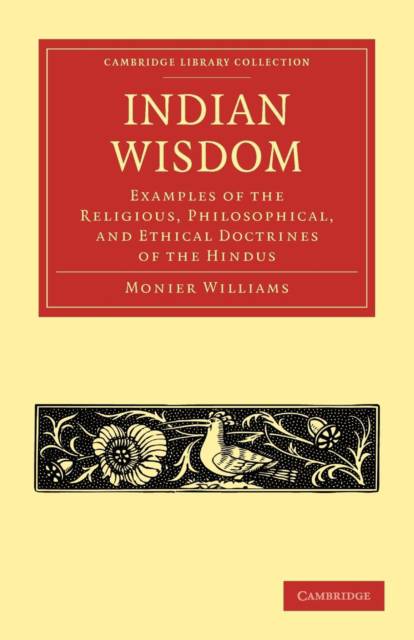
Bedankt voor het vertrouwen het afgelopen jaar! Om jou te bedanken bieden we GRATIS verzending (in België) aan op alles gedurende de hele maand januari.
- Afhalen na 1 uur in een winkel met voorraad
- In januari gratis thuislevering in België
- Ruim aanbod met 7 miljoen producten
Bedankt voor het vertrouwen het afgelopen jaar! Om jou te bedanken bieden we GRATIS verzending (in België) aan op alles gedurende de hele maand januari.
- Afhalen na 1 uur in een winkel met voorraad
- In januari gratis thuislevering in België
- Ruim aanbod met 7 miljoen producten
Zoeken
Indian Wisdom
Examples of the Religious, Philosophical, and Ethical Doctrines of the Hindus
Monier Williams, Williams Monier
€ 50,45
+ 100 punten
Uitvoering
Omschrijving
First published in 1875, this book reflects a growing nineteenth-century British interest in South Asian culture and literature. In it Monier Williams, the Professor of Sanskrit at Oxford, outlines the patterns of thought and customs of the Hindu religion. He also describes the character and content of Sanskrit literature, which had not previously been attempted in English. According to Williams, Sanskrit literature holds the key to a full understanding of Hinduism. He makes it unequivocally clear that Britain's colonial hold over India involves a particular responsibility and indeed opportunity to study the three religions confronting Christianity there, namely Brahmanism, Buddhism and Islam. Monier Williams writes about the Vedas (the sacred texts of Hinduism), the different traditions of philosophy and the five schools of Hindu law. He elaborates on the epic poems and the doctrine of incarnation embedded in them, and compares this ancient poetry with that of Homer.
Specificaties
Betrokkenen
- Auteur(s):
- Uitgeverij:
Inhoud
- Aantal bladzijden:
- 600
- Taal:
- Engels
- Reeks:
Eigenschappen
- Productcode (EAN):
- 9781108007955
- Verschijningsdatum:
- 4/03/2010
- Uitvoering:
- Paperback
- Formaat:
- Trade paperback (VS)
- Afmetingen:
- 140 mm x 216 mm
- Gewicht:
- 752 g

Alleen bij Standaard Boekhandel
+ 100 punten op je klantenkaart van Standaard Boekhandel
Beoordelingen
We publiceren alleen reviews die voldoen aan de voorwaarden voor reviews. Bekijk onze voorwaarden voor reviews.









